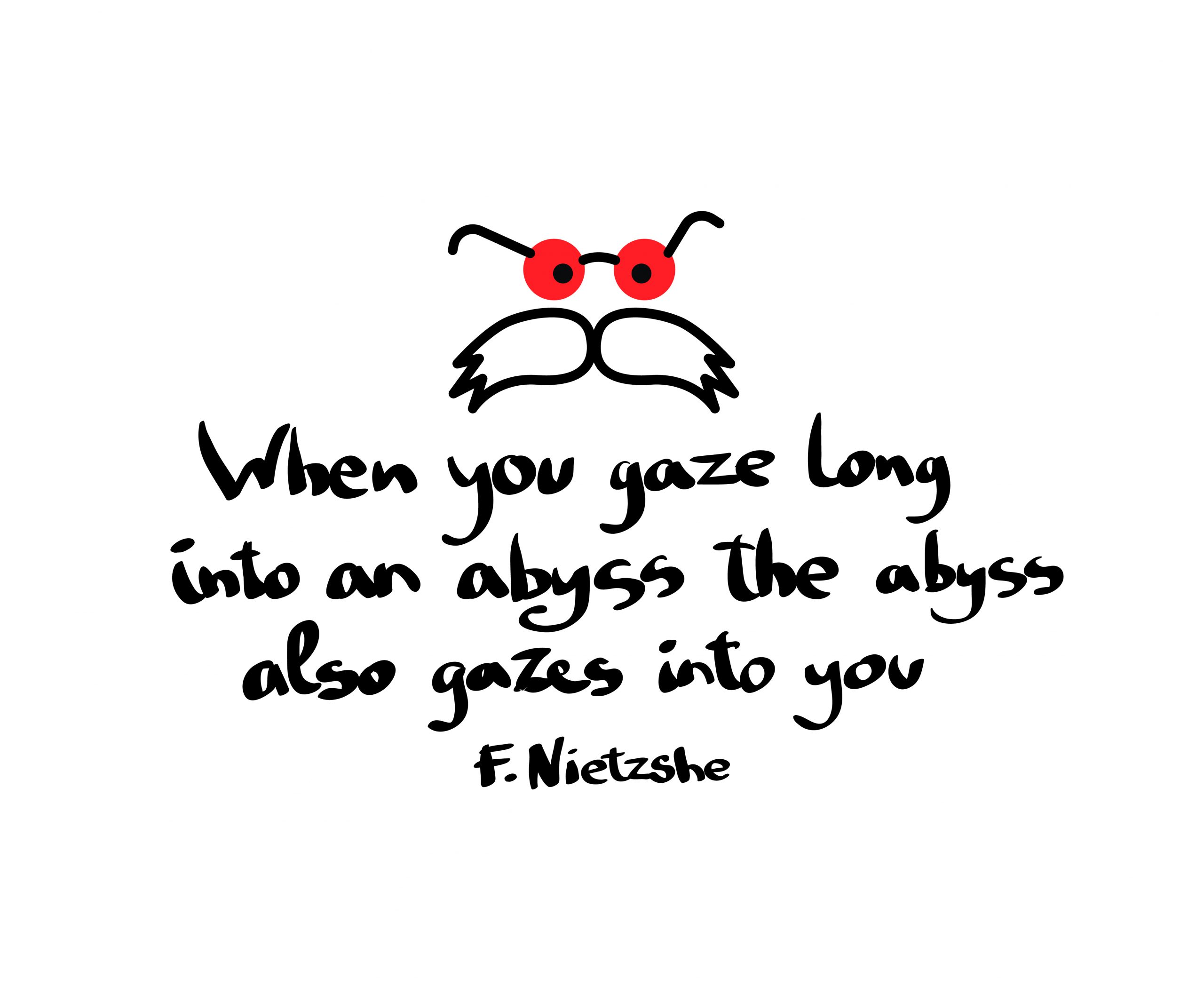Philosopher’s Introduction
Nietzsche is one of the most well-known figures in the history of the world, being a German philosopher, essayist, and cultural critic. Living from 1844 to 1900, Nietzsche’s theory left a mark by writing and analyzing the world of truth, and his quotes for morality, language, aesthetics, cultural theory, history, and power are contemporary.
Everything he was writing was connected to consciousness and the human being’s personality as a means in life’s purpose. Nietzsche’s theory exerted an enormous influence on Western philosophy and intellectual history.
However, it would be impossible to describe Nietzsche’s theory in less than a 500-page book (let alone a simple article). Still, it would also be counterproductive to try and find a specific approach for a short writing piece, maybe disregarding essential parts of his work.
Therefore, what we are trying to achieve here is better understand Nietzsche’s theory by using actual quotes. So, without further ado, let’s jump into today’s topic: the top-10 selections explaining Nietzsche’s theory.
Friedrich Nietzsche’s Theory – Music
1. “Without music, life would be a mistake.”
This is what we meant when discussing Nietzsche being a cultural theorist who had a significant influence in various fields.
According to the WQXR Editorial, Nietzsche, who studied and wrote the music and played the piano, was for a time an intimate friend of Richard Wagner and his wife, Cosima, and was a great admirer of Wagner’s work.
2. “And those seen dancing were thought to be insane by those who could not hear the music.”
There’s excellent parallelism originating from this quote. Friedrich Nietzsche is brilliant in connecting his theory with his favorite activities; dancing and music. People will judge and hate because they don’t know what others have been through.
A life lesson for everyone who strives in life is never to consider other voices that have never been in the same circumstances as you. It would help if you never stopped dancing because people who can’t hear the music told you so or judged you.
Friedrich Nietzsche’s Theory – Personal Values
3. “That which does not kill us makes us stronger.”
One quote that we use every day in our lives isn’t surprising from Nietzsche’s theory, considering his impact on life advice. The meaning of life is to live authentically and powerfully. That will only happen if you become more assertive after significant setbacks. According to Nietzsche’s theory, this is how one creates his own goals and values.
4. “I’m not upset that you lied to me; I’m upset that from now on, I can’t believe you.”
When someone you genuinely love, lies right to your face, you are never upset about the lie. People lie every day, and you don’t care because you never trusted them. For this particular person, you feel bad because you never see them in the same way.
The fact that you can never trust them again hurts more and Friedrich Nietzsche was fully aware of this moral reality.

Friedrich Nietzsche’s Theory – No Perfection
5. “It is hard enough to remember my opinions without also remembering my reasons!”
People tend to always push for their agenda and opinion, disregarding the counterargument of their interlocutor and forgetting their reasoning in purpose.
These are the people that Friedrich Nietzsche tries to help and get one step closer to the truth, even if that means that they aren’t following their narrow-minded approach as before.
6. “You have your way. I have my way. As for the right way, the correct way, and the only way, it does not exist.”
Reading Friedrich Nietzsche and understanding his theory entails being able to fathom that there’s no such thing as perfection. People might have their way, and you might also have another approach to offer.
That doesn’t mean that one is right and the other is wrong, and this certainly doesn’t mean that you have to go against anyone with a different mindset.
7. “There are no facts, only interpretations.”
Going off the previous point, Friedrich Nietzsche clarifies that there’s no evident approach and, therefore, there are no facts. Groundbreaking thinking.
We know that, and we accept it. Nothing in our life should be taken for granted, and more specifically, everything in life should be questioned.
Friedrich Nietzsche’s Theory – Life Advice
8. “The man of knowledge must be able to love his enemies and hate his friends.”
Everybody talks about loving your enemies and giving them a second chance. Jesus tells His people that their next most tremendous responsibility is to love their neighbor as dearly as they love themselves. It’s not a new approach.
What’s new has to do with cutting out the people you genuinely love. Why? Because you are emotionally connected to them and their heart. Not only it’s difficult, but it’s almost impossible. Once you do it, however, nobody is walking over you. This is how you build your values as a human being, per Nietzsche’s theory and the aforementioned quotes.
9. “The individual has always struggled to keep from being overwhelmed by the tribe. If you try it, you will be lonely often and sometimes frightened. But no price is too high to pay for the privilege of owning yourself.”
This is the development of the values we talked about before. A pretty self-explanatory statement by Friedrich Nietzsche.
10. “When we are tired, we are attacked by ideas we conquered long ago.”
That’s even a more profound statement by the philosopher. Being exhausted mentally is ten times worse than being physically exhausted. Your mind starts overthinking, and you might return to your earlier stages when you were constantly making mistakes and never improving.
As per Friedrich Nietzsche’s quotes, watch out for your mental health because the gravity of its impact is more severe than any effect your physical health might ever have.
References
Arena, Leonardo Vittorio (2012). Nietzsche in China in the XXth Century. ebook.
Babich, Babette E. (1994), Nietzsche’s Philosophy of Science, Albany: State University of New York Press.
Baird, Forrest E; Kaufmann, Walter (2008). From Plato to Derrida. Upper Saddle River, NJ: Pearson Prentice Hall. pp. 1011–1138. ISBN 978-0-13-158591-1.
Huskinson, Lucy. “Nietzsche and Jung: The whole self in the union of opposites” (London and New York: Routledge, 2004)
Kaplan, Erman. Cosmological Aesthetics through the Kantian Sublime and Nietzschean Dionysian. Lanham: UPA, Rowman & Littlefield, 2014.











